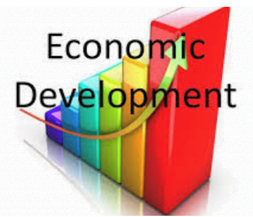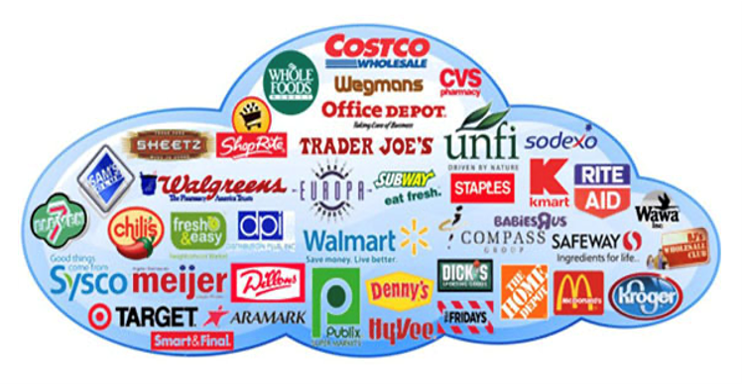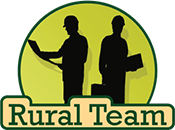
Definition: Community Economic Development (CED) or Local Economic Development (LED) is a community driven process where communities identify and initiate their own solutions to economic, social and environmental issues to build healthy, economically viable communities. CED contains principles and goals based on a grassroots approach to development where communities choose deliberate actions to influence the local economy and improve the quality of life for its residents.
- Form a CED agency/organization that is responsible for leading the CED process.
- Work with your neighbors in a region to address common development issues.
- Collect and analyze data to determine appropriate strategies and activities.
- Decide on a strategic focus based on the data analysis. This can include a combination of strategies such as:
- -Business development (ex: local investment pool, business support services)
-Local development (ex: beautification, zoning, industrial parks
-Human resource development (ex: local training initiatives)
-Sector development (ex: business retention and expansion projects, supply chain gap analysis)
Our Expertise
Retail and Food Service Centers:
We have over 30-years history working (as suppliers) with retailers, food service operators and service industry formats. We have partner offices in Bentonville, AR (Wal-Mart, Sam’s Club); Minneapolis (Target); Troy, MI (Meijer) as well as our own (Dallas, TX; Las Vegas, NV and Raleigh, NC) that are involved with retailers and food service customers nationwide.


The International Council of Shopping Centers (ICSC) is the global trade association of the shopping center and retail real estate industry. Founded in 1957, it features more than 70,000 members in over 100 countries, including shopping center owners, developers, managers, marketing specialists, investors, retailers and brokers, as well as academics and public officials. As the global industry trade association, ICSC links with more than 25 national and regional shopping center councils throughout the world.

We have also participated in the core commercial real estate shows (ex ReCon) that everyone meets at. We have access to commercial real estate brokers, real estate departments (retailers, food service) and industry suppliers.
Participants of the trade show we usually meet with:
- 99 Cents Only Stores
- Aarons
- Adventure Golf Services
- Alamo Drafthouse Cinema
- AutoZone, Inc.
- Balboa Retail Partners
- Best Western Hotels & Resorts
- Big 5 Sporting Goods
- Bliss Car Wash, LLC,
- Bojangles’ Restaurants, Inc.,
- Bridgestone Retail Operations, LLC
- Burger King Corporation
- Burlington Stores, Inc
- Captain D’s Seafood
- Ollie’s Bargain Outlet, Inc,
- Orangetheory Fitness
- Pacific Retail
- Paris Baguette
- Planet Fitness
- Planned Grocery
- Primrose Schools
- Quick Quack Car Wash
- Save A Lot
- Self Esteem Brands, LLC
- SimonCRE
- Site Source
- Retail Broker Network
- SiteZeus
- Smoothie King
- The Home Depot Inc
- Thompson Thrift Retail Group
- Tommy’s Express Car Wash
- Tropical Smoothie Café, LLC
- Xponential Fitness,
- Chase Bank
- Checkers Drive In Restaurants, Inc
- Choice Hotels International, Inc.
- Circle K Stores Inc.
- CKE Restaurants Holdings, Inc (Carl’s Jr)
- Cobblestone Hotels
- Crunch Fitness (Franchise)
- Cushman & Wakefield, Inc
- CBRE
- CVS Pharmacy
- Dairy Queen
- Del Taco, LLC
- Dogtopia
- Dollar Tree & Family Dollar
- QuikTrip Corporation
- Radisson Hotel Group
- Raising Cane’s Chicken Fingers
- Read King
- Regency Centers
- Regis Corporation
- RK Centers
- Salsbury Industries – Mailboxes.com
- Sonny’s The Car Wash Factory
- Speedway
- Spirit Halloween Superstores
- Sport Clips
- Starwood Retail Partners
- Tanger Factory Outlet Centers, Inc
- Zaxby’s Franchising, LLC
- Yum! Brands (KFC, Taco Bell, Pizza Hut)
- Valvoline
- Verizon Wireless
- Walgreens
- Rite-Aid
- EOS Fitness
- Famous Footwear
- Festival Companies
- Fitness International, LLC
- Realsource Partners
- Floor and Décor
- FOCUS Brands
- G6 Hospitality
- Intercontinental Hotels Group
- Jack In The Box
- Kiddie Academy
- Lidl US
- Little Caesar Enterprises, Inc
- Marco’s Franchising, LLC
- Marriott International, Inc
- Maverick Commercial Properties,
- McDonald’s US Restaurant Development
- MGM Resorts – Retail
- Mr. Clean Car Wash
- Murphy USA
- NaviRetail
- Sprint,
- St. Nick’s Christmas Lighting & Décor
- Starbucks Coffee Company
- The Home Depot Inc.
- The Kroger Co.
- The Learning Experience
- The TJX Companies, Inc
- The UPS Store
- The Wendy’s Company,
- Walmart Stores, Inc.
- Wells Fargo Bank
- WSS Shoes Style Selection
- Wyndham Hotels & Resorts
Franchising:
Our partnering team, FranchisEDU (www.FranchisEDU.com) is our internal advisors relating to the franchising industry. A part of their roles are finding new locations for over 500 franchisor clients (regional and national).
- Art
- Automotive
- Beauty
- Business Services
- Infant/Children’s
- Retail Formats
- Cleaning and Maintenance
- Travel
- Staffing
- Vending
- Construction
- Education
- Entertainment
- Financial Services
- Fitness
- Food Service
- Health and Wellness
- HOA Management
- Technology
- Senior Care
- Home Services
- Medical
- Moving and Storage
- Pet
- Recreation
![]()
Industry Stats
- An Average of 300 Companies Start Franchising Each Year
- There are More than 750,000 Active Franchised Outlets
- More Than 80 Percent of Franchises are Local or Regional Brands
- Just Over a Third of Franchises are “Food-Related” Brands
- More than Half of All Franchises Cost More Than $250,000 to Open
 The International Franchise Association (IFA) is a trade group focused on government and public relations efforts for the franchise industry. The association publishes data on franchise activity through a partnership with the U.S. Census Bureau. and has litigated on behalf of its members in cases that have reached the U.S. Supreme Court.
The International Franchise Association (IFA) is a trade group focused on government and public relations efforts for the franchise industry. The association publishes data on franchise activity through a partnership with the U.S. Census Bureau. and has litigated on behalf of its members in cases that have reached the U.S. Supreme Court.
- We have been participants in IFA events for many years and have been involved with a-number of IFA members as well.
Core Customers by State
We list out the customers that are prime for your launch efforts (state to state). We also list the important marketing programs that each State Department of Agriculture has. We educate clients about those important targets that are local, regional and national.
Retail Formats
- Supermarkets
- Convenience Stores
- Natural Retailers
- Specialty Retailers
- E-Commerce Platforms
- Club Stores
- Mass Merchandisers
- Drug Stores and Pharmacies
- Military Retail Formats
- Candy Stores
- Office Supply Stores
- Party Stores
- Craft and Hobby
- Truck Stops
- Wine Stores
- Specialty Food Stores
- Sporting Goods Stores
- Hardware Stores
- Farm Supply Stores
- Veterans Canteens
Food Service Formats
- Vending Distributors
- Hospitals
- Colleges and Universities
- Offices and Factories (Micro Markets)
- Rehab Clinics
- VA Hospitals
- Prisons
- Active Aging Centers
- Stadiums and Arenas
- Restaurants
- Hotels and Resorts
- Airports and Airlines
- Coffee Shops
- Smoothie Shops
- Water Parks/Theme Parks
- Zoos and Aquariums
- Schools (k-12)
- Movie Theatres
- Juice Shops
- Fitness Centers
US Based Community Economic Development Programs
Community Economic Development (CED) is a federal grant program funding Community Development Corporations that address the economic needs of low-income individuals and families through the creation of sustainable business development and employment opportunities.
CED’s projects create employment opportunities that lead to increased self-sufficiency for individuals with low income through a variety of activities, such as:
Capital expenditures such as the purchase of equipment or real property;
Allowable operating expenses; and loans or equity investments.
CED funds a variety of projects, including:
Business incubators;
Shopping centers;
Manufacturing businesses; and
Agricultural initiatives.
CED awards funds to private, non-profit organizations that are community development corporations (CDCs), including faith-based organizations, and Tribal and Alaskan Native organizations. CDCs must be governed by a three-party board of directors that includes residents of the community served, and local business and civic leaders. CDCs must have as their principle purpose planning, developing or managing low-income housing or community development projects.
Source: www.acf.hhs.gov/ocs/programs/ced
Rural Community Development (RCD) is a federal grant program that works with regional and tribal organizations to manage safe water systems in rural communities. RCD funds are used to provide training and technical assistance to:
Increase access for families with low incomes to water supply and waste disposal services;
Preserve affordable water and waste disposal services in low-income rural communities;
Increase local capacity and expertise to establish and maintain needed community facilities;
Increase economic opportunities for low-income rural communities by ensuring they have basic water and sanitation;
Utilize technical assistance to leverage additional public and private resources; and
Promote improved coordination of federal, state, and local agencies and financing programs to benefit low-income communities.
Source: www.acf.hhs.gov/ocs/programs/ced
The OCS Tribal Services Workgroup works with tribes and tribal organizations to keep these populations informed of opportunities available to them within the Office of Community Services.
The Tribal Workgroup helps tribes access these OCS programs:
Assets for Independence (AFI) program is authorized to award grants to tribal governments that apply jointly with a non-profit organization with 501(c)(3) status. AFI-funded projects provide individual development accounts (IDAs) and related services to low-income individuals. Participants’ savings are matched by the project and the combined funds are used to purchase an allowable asset: a first home, a business, or post-secondary education or training
Community Services Block Grants (CSBG) provides funds to tribes and tribal organizations to support services and activities for low-income individuals and families that alleviate the causes and conditions of poverty in communities. Activities and services address: employment, education, housing, nutrition, emergency services, substance abuse, energy, and health care services.
Community Economic Development (CED) program offers grants to tribes for business start-up or business expansion and the development of new products and services.
Rural Community Development (RCD) program works with regional and tribal organizations to manage safe water systems in rural communities.
Tribal households can benefit from the Low Income Home Energy Assistance Program (LIHEAP) on both the state and federal level by applying for benefits, becoming a contractor or administering and delivering the LIHEAP benefits directly to their tribal households.
